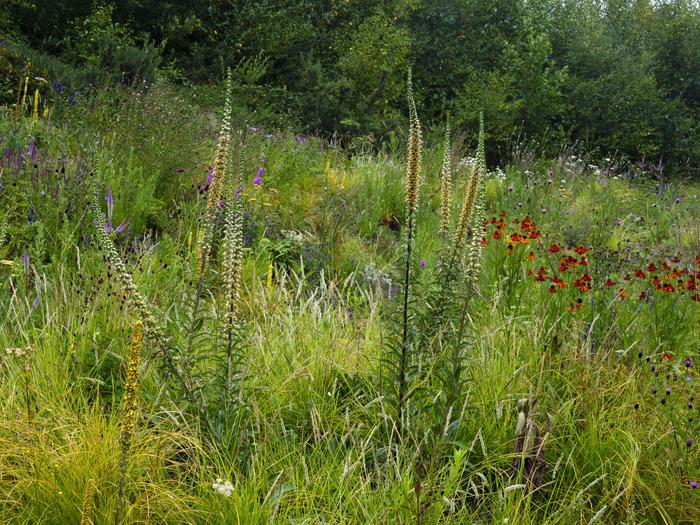Researchers from the universities of Exeter and Edinburgh have launched Pollinator Pathmaker, a project leveraging art and algorithms to transform gardens into pollinator-friendly habitats, aiming to reverse the decline of vital pollinating insects.
In a bid to combat the alarming decline of pollinating insects, an innovative project is transforming gardens into vibrant “living artworks.” Pollinator Pathmaker, an extraordinary blend of art and ecology developed by Alexandra Daisy Ginsberg, employs a unique algorithm to generate planting designs that prioritize the needs of pollinators over human aesthetics.
Originally commissioned by the Eden Project in Cornwall in 2021, Pollinator Pathmaker has since evolved into a tool accessible to the general public. This platform allows users to input specifics about their gardens, including plot size, location conditions and soil types. The algorithm then optimizes these parameters to create a design that supports a diverse range of pollinators — ranging from bees to beetles. While the primary focus is on pollinators, the end result can also be visually appealing to people.

Pollinator Pathmaker Eden Project Edition
Credit: Photo Royston Hunt. Courtesy Alexandra Daisy Ginsberg Ltd
The ambitious initiative, now spearheaded by researchers from the universities of Exeter and Edinburgh, has secured funding from UK Research and Innovation under a new interdisciplinary research scheme. As part of this endeavor, residents in the village of Constantine in Cornwall will plant networks of Pollinator Pathmaker gardens, which will form the basis of a crucial multidisciplinary study.
“Pollinators are declining rapidly worldwide and – with urban and agricultural areas often hostile to them – gardens are increasingly vital refuges,” Christopher Kaiser-Bunbury, a senior lecturer of conservation and ecology at the University Exeter’s Penryn Campus in Cornwall, said in a news release. “Our research project brings together art, ecology, social science and philosophy to reimagine what gardens are and what they’re for.”
In the face of an ongoing ecological crisis, this project represents a significant stride towards sustainable conservation efforts. By encouraging communities to create pollinator-friendly environments, the initiative aims to form connected networks of sanctuaries critical for the survival of these insects.
Ginsberg envisions Pollinator Pathmaker as “an artwork for other species that has been growing internationally,” emphasizing the broader impact of artistic expression on environmental preservation.
With support from prominent researchers, the project seeks to probe deeper into the societal and philosophical implications of this artistic approach.
“How will people relate to their gardens if they’re designed for pollinators rather than people?” is a central question for Jane Calvert , a professor of science and technological studies at the University of Edinburgh, who will explore this through sociological lenses.
Meanwhile, John Dupré, a professor of philosophy at the University of Exeter, will delve into the philosophical aspects, reflecting on the interrelation between art, nature and the nonhuman world.
The insights gained from this innovative crossover of disciplines will shed light on the potential of artistic interventions in driving ecological awareness and action. As the world grapples with climate change and biodiversity loss, initiatives like Pollinator Pathmaker offer a beacon of hope, demonstrating how creativity and science can intersect to foster environmental stewardship.

